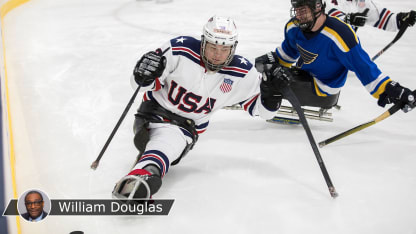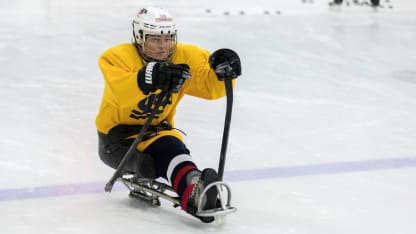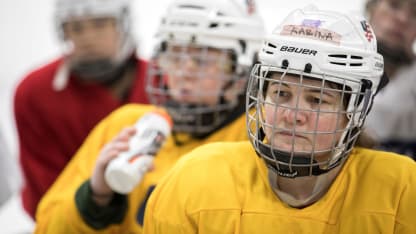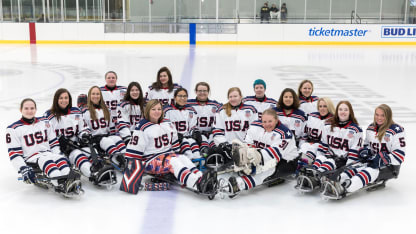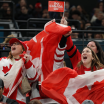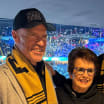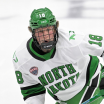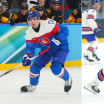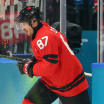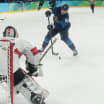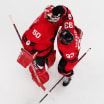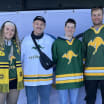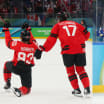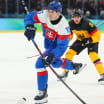"She has definitely built up her upper body strength, and that's an extreme help in sled hockey where you're propelling yourself up and down the ice just purely with your arms," said Rose Misiewicz, the U.S. women's coach. "Before and after every practice and before and after every game she's asking what she can do to get better. She always wants more ice time. You can tell she loves the sport."
Villegas said when she arrived in the United States, she never imagined she would someday represent her adopted country on the international stage.
She said was overcome with emotion when the U.S. women's team won the 2018 Women's Para Ice Hockey World Cup.
"It was an unbelievable experience," Villegas said. "We heard the national anthem and saw the flag. I'm on the blue line and I'm not Karina anymore. I'm representing a team, a country. All the feelings came together like the feelings when I came here the first time and I applied for my asylum case, when I got the letter that I was approved, when I got my citizenship.
"It was painful to leave Venezuela, my country, my homeland. But the feeling that you're welcome in another country that you came in with nothing, no clothes, you came as some refugee, is good."
For that, Villegas thanks hockey. She said she wants to pay it forward by working to introduce sled hockey to Latin American countries; she participated in an exhibition of the sport in Puerto Rico in 2018 at an event in conjunction with USA Hockey and the Florida Panthers.
"Hockey has brought so much beauty to my life, so many good things, so many friends that are basically like my family right now, and so many dreams," she said. "I really want to try to go places and bring hockey to them."
Photos Courtesy: Julia Cumes/USA Hockey
